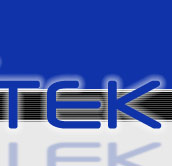 |
IPC-J-STD-001 Certified IPC Trainer Certification |
The IPC-J-STD-001 “Requirements for soldered electrical and electronic assemblies” has emerged as the pre-eminent authority for Electronic assembly manufacturing worldwide. The standard describes materials, methods and verification criteria for producing high quality soldered interconnections. The standard emphasises process control and established industry consensus requirements for a broad range of electronic connections.
How the Certification Program Works:
Companies participating in the J-STD-001 CIT Program participate in forty hours of intensive, hands-on instruction. The training program provides both a theoretical and practical review of the IPC-J-STD-001 criteria. CIT Training requires the use of lead free solder on at least 50% of the practical soldering samples. (Practical work can be 100% completed using lead free solder on request).During soldering labs, students will learn approved assembly and soldering processes for terminal/wire, Through-Hole and Surface Mount soldering. Candidates who pass the classroom exams and skills demonstrations are recognized by IPC as "Certified IPC Trainers" and leave with a lesson plan, visuals and materials for training personnel on up to five different assembly and soldering modules. All J-STD-001 Certified IPC Trainers are certified for two years.
Who Should Enrol in Certified IPC Training?
Assembly Process Engineers and Technicians, Quality Assurance Supervisors, Training Managers and anyone responsible for the quality and reliability of soldered electronic assemblies would make excellent candidates for the J-STD-001 Certified IPC Trainer course. Presentation skills and techniques are included in this course to help new Instructors learn about teaching methods and ways to improve presentations.
Training Topics Include: |

|
Instructional Skills and the roles and responsibilities of the IPC Trainer |

|
General requirements such as safety, tools and ESD requirements |

|
Materials e.g. solder, flux, coating requirements |

|
Wire and Terminals Assembly requirements, practical demonstration and evaluation session |
 |
PTH requirements, practical demonstration and evaluation session |
 |
SMT requirements, practical demonstration and evaluation session |
 |
General soldered connection acceptance requirements |
 |
Test methods and related standards |
 |
Use of Statistical Process Control methodology |
 |
Machine and reflow soldering process requirements |
 |
Requirements for Printed Circuit Boards |
 |
Cleanliness requirements |
Course Modules: |
 |
Module1: Overview of J-STD-001 Requirements |
 |
Module 2: Wires and Terminals Requirements |
 |
Module 3 : PCB, Coating, Encapsulation and Staking |
 |
Module 4: PTH assembly and soldering Requirements |
 |
Module 5: SMT assembly and soldering Requirements |
 |
Module 6: Inspection skills and process controls Requirements |
Certified IPC Trainer Benefits:
This program provides Certified IPC Trainers and their companies with a valuable internationally industry-recognized credential. They leave the course with an extensive range of skills and knowledge to pass on to your personnel to ensure that your product is manufactured at a high level of quality. IPC-J-STD-001 Certified IPC Trainers also receive the following teaching materials for conducting Certified IPC Specialist Training.
 |
A copy of IPC-J-STD-001 |
 |
Artwork for test/practice kits |
 |
An IPC certificate of completion |
 |
CIT Survival Guide |
 |
Certified IPC Specialist course forms |
|
|
Booking
Form Quotation
Request Form
Print
Page
|

